
Walking through the central streets of Kyoto in July, one can hear the sound of Gion music coming from somewhere. Hear this,Summer is in full swing again this year!"Many people realize that this is not the case.It is a wonder that even those who are not fond of hot weather can feel relaxed when they hear the musical accompaniment of the Konchikichin.
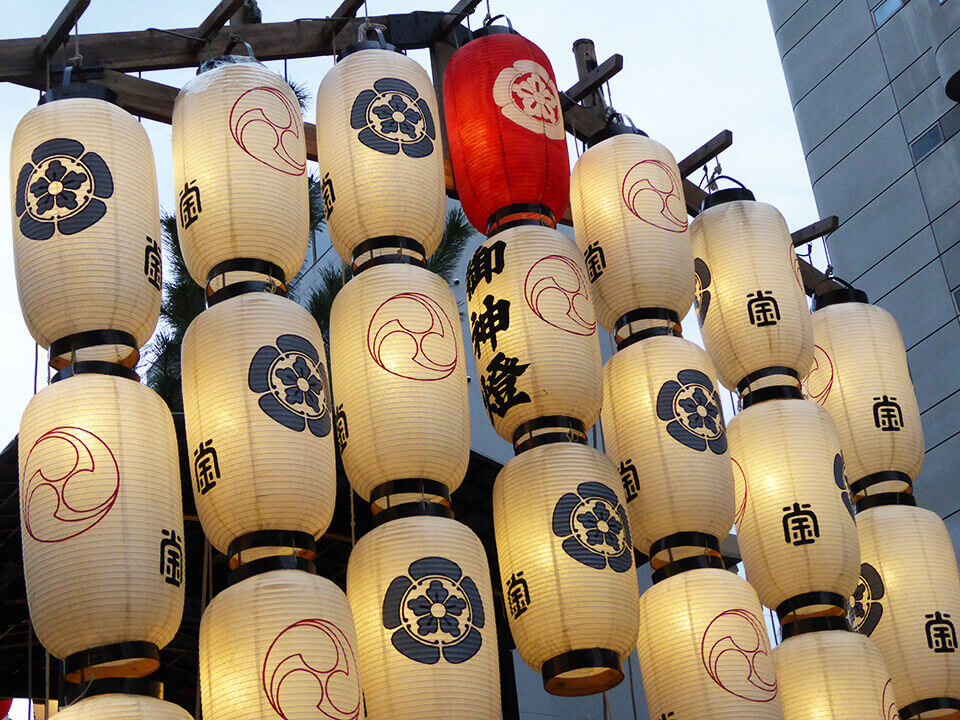
Gion Festival
The Gion Festival takes place over a period of one month starting on July 1. In the old days, people in Kyoto believed that plague and disease were brought about by grudge spirits, and held Gorei-no-kai to stop the spread of plague and disease.The Gion Festival began as a ceremony held during the Heian period (794-1192) to ward off the plague.It is said to be.
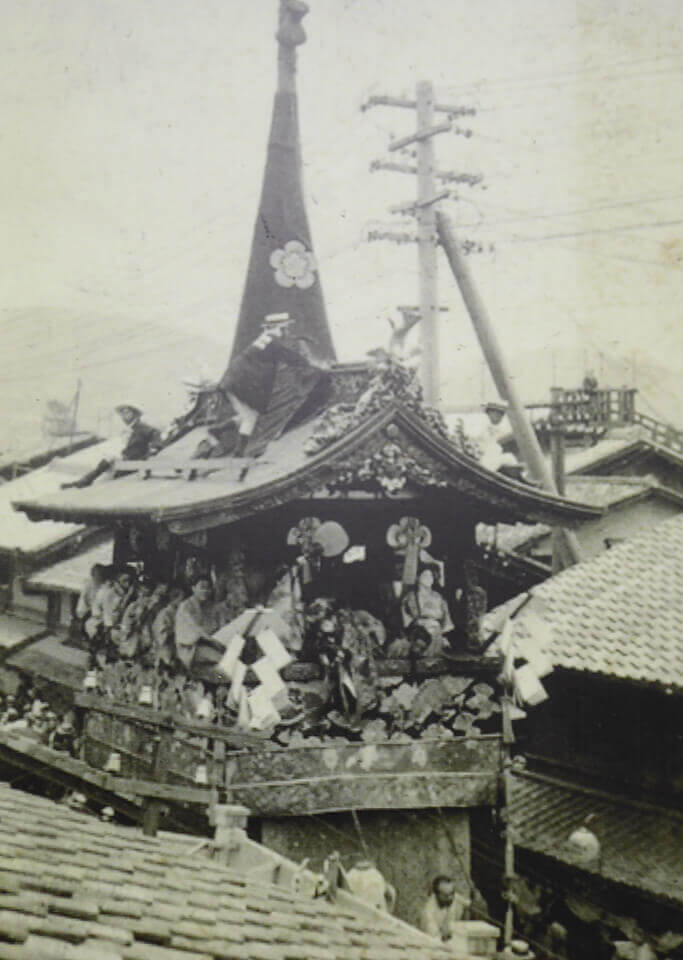
Yamaboko Junko in the old days
This is the time of year when the heat and humidity are at their peak, and in the past, dysentery and typhoid fever were common. Heavy rainfall also caused stagnant well water and frequent outbreaks of food poisoning. At some point, the Gion Festival, which was held to ward off epidemics, became more of a festival for the people's enjoyment.
In 2014, the Ofunaboko floats were revived for the first time in 150 years, and the procession was divided into the Mae-matsuri and the Goto-matsuri. The Yamaboko Junko is a great pleasure to watch,Tsuji-zuri, a large float spinning vigorouslyThe parade is a great success. The parade is enlivened by the vigorous shouts, the powerful whirling of the floats as they creak, and the applause of the onlookers.
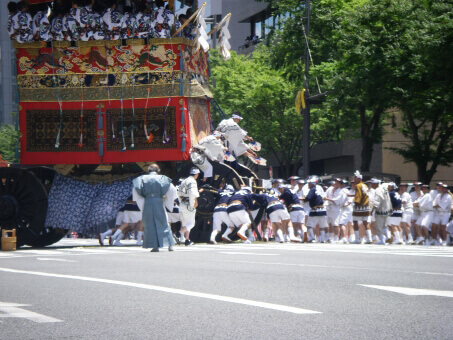
A scene from "Tsujikawashi" (turning a street corner)
By the way, think about this Tsuji-turn,A very strong element of protection against evil.The reason for this is that the place called "Tsuji," where the procession of Yamaboko floats takes place, has been called a magical place since ancient times. This is because the place called "Tsuji," where the procession of Yamaboko floats takes place, has been called a "magical place" since ancient times. The intersection of two roads in the shape of a cross has been considered the boundary between this world and the next, or a place where different worlds intersect. In some regions, there is even a legend that a specter called "Tsujigami" lives at the crossroads, and that if a person is caught in the crossroads and consumed, misfortune will befall him or her.
previously introduced.Awawa no tsuji.was also a magical place feared by the people of Kyoto.
It's actually a Tsuji-turn that takes place in a magic place,The spear carries many items to ward off evil spirits.The first is the naginataboko (long sword) that leads the procession at the Mae-matsuri festival. First of all, the naginohoko floats, which lead the procession in the Mae-matsuri festival, use their sharp long swords to ward off evil spirits.
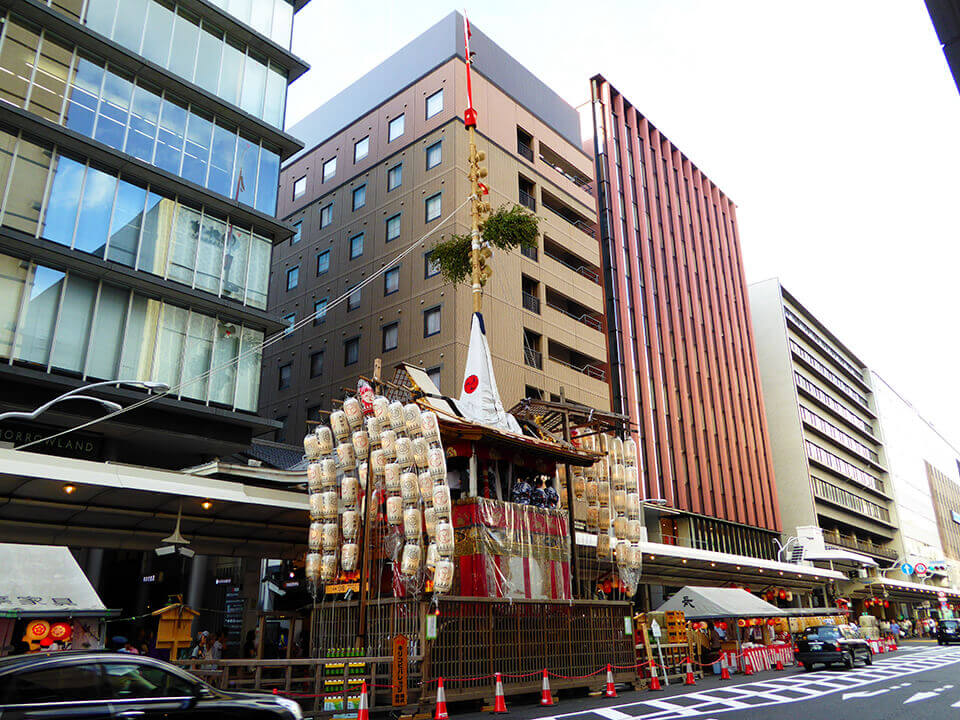
halberd
The green bamboos laid at the intersections of the floats to ensure a smooth change of direction are a lucky charm to ward off evil spirits. The musical accompaniment, including flutes, drums, and gongs, is also believed to ward off evil spirits.
The Yamaboko Junko not only entertains spectators,The streets are firmly ridding the city of evil spirits and purifying Kyoto in the middle of summer.Noda.
Incidentally, "chimaki," a specialty of the Gion Festival sold at the meeting place, is also an item to ward off bad luck and invite good fortune. It is said that the reason for decorating the chimaki outside the entrance rather than inside is so that the god of pestilence can recognize it at a glance and prevent its entry. Since I fail to buy chimaki every year, I would like to get some this year and display them at my front door to take advantage of the blessings and stay healthy during the hot summer season.
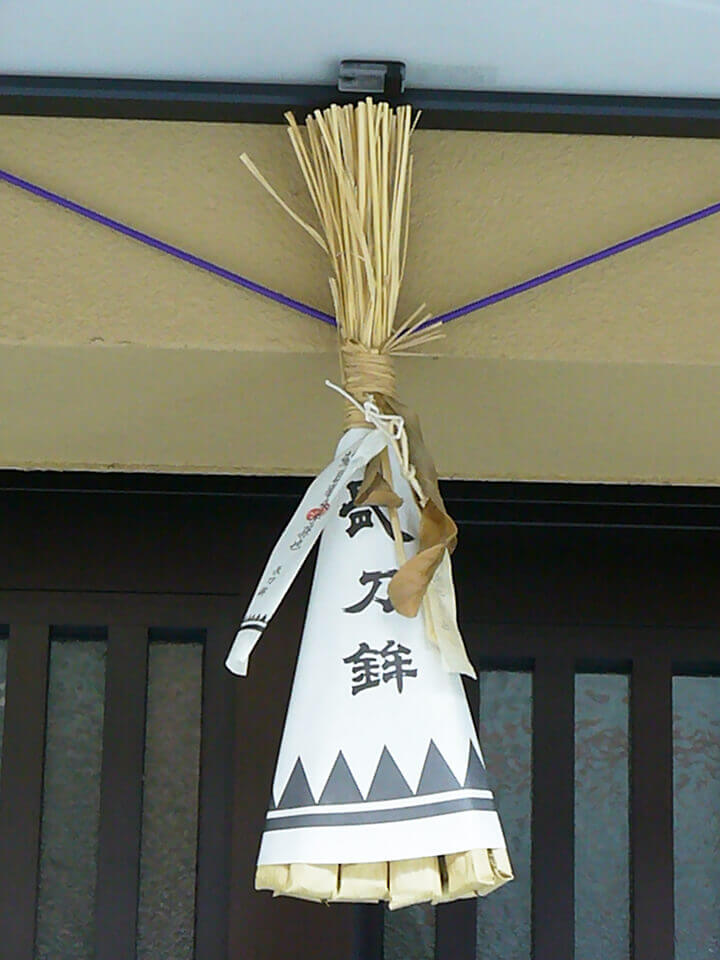
Chimaki of Nagatohoko floats displayed at the entrance
Tradition that exists everywhere in the city of Kyoto. It is not just a picture, it is secretly alive in this modern age and continues to coexist with people. The two of Office TO, who previously wrote a series of articles "Kyoto's Demon World Exploration" in the monthly magazine Leaf, explore the mysterious "different" world of Kyoto, which was created over 1200 years. I will unravel the story while actually visiting the place. .
 News
News Feature article
Feature article Featured event
Featured event